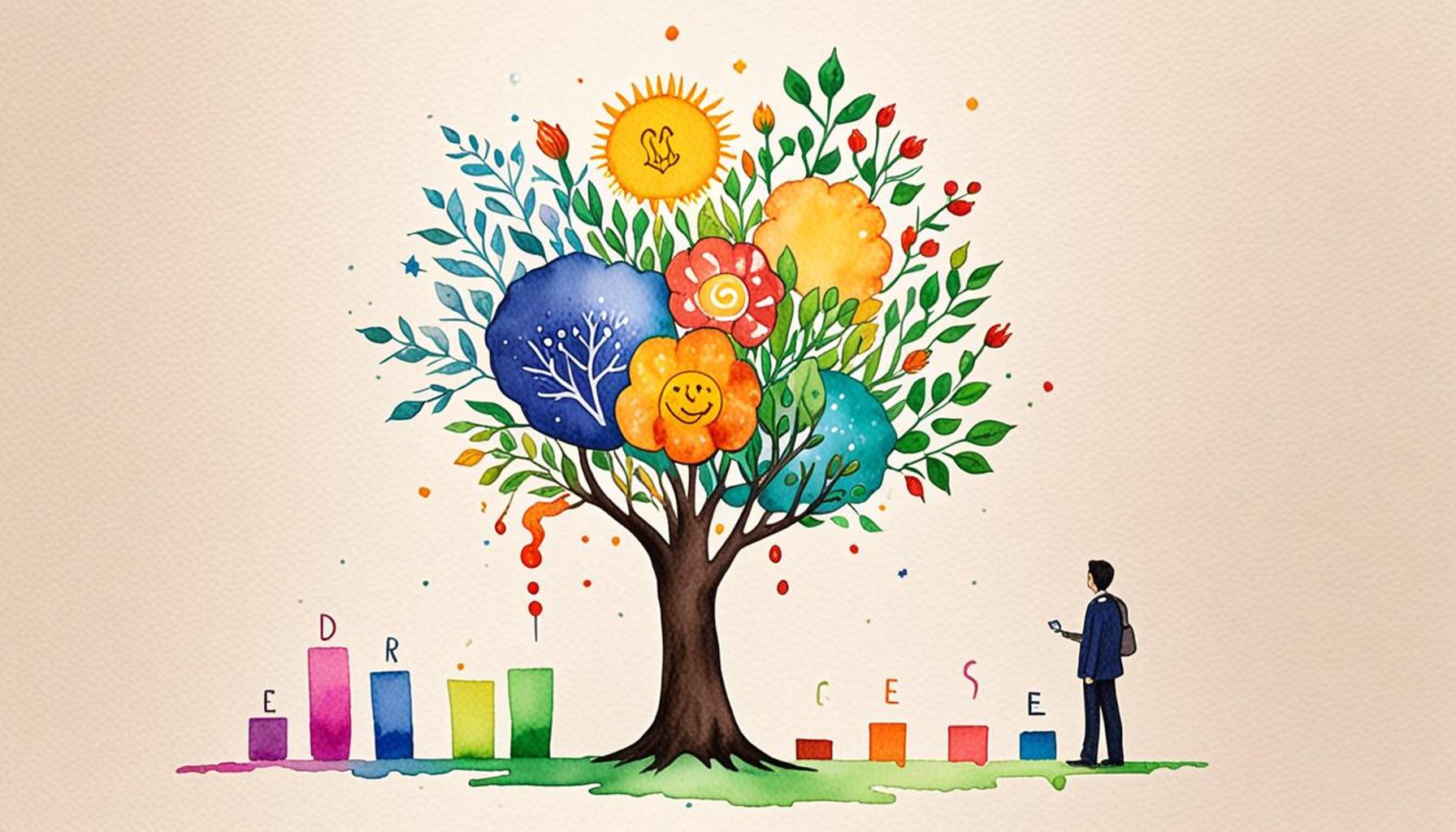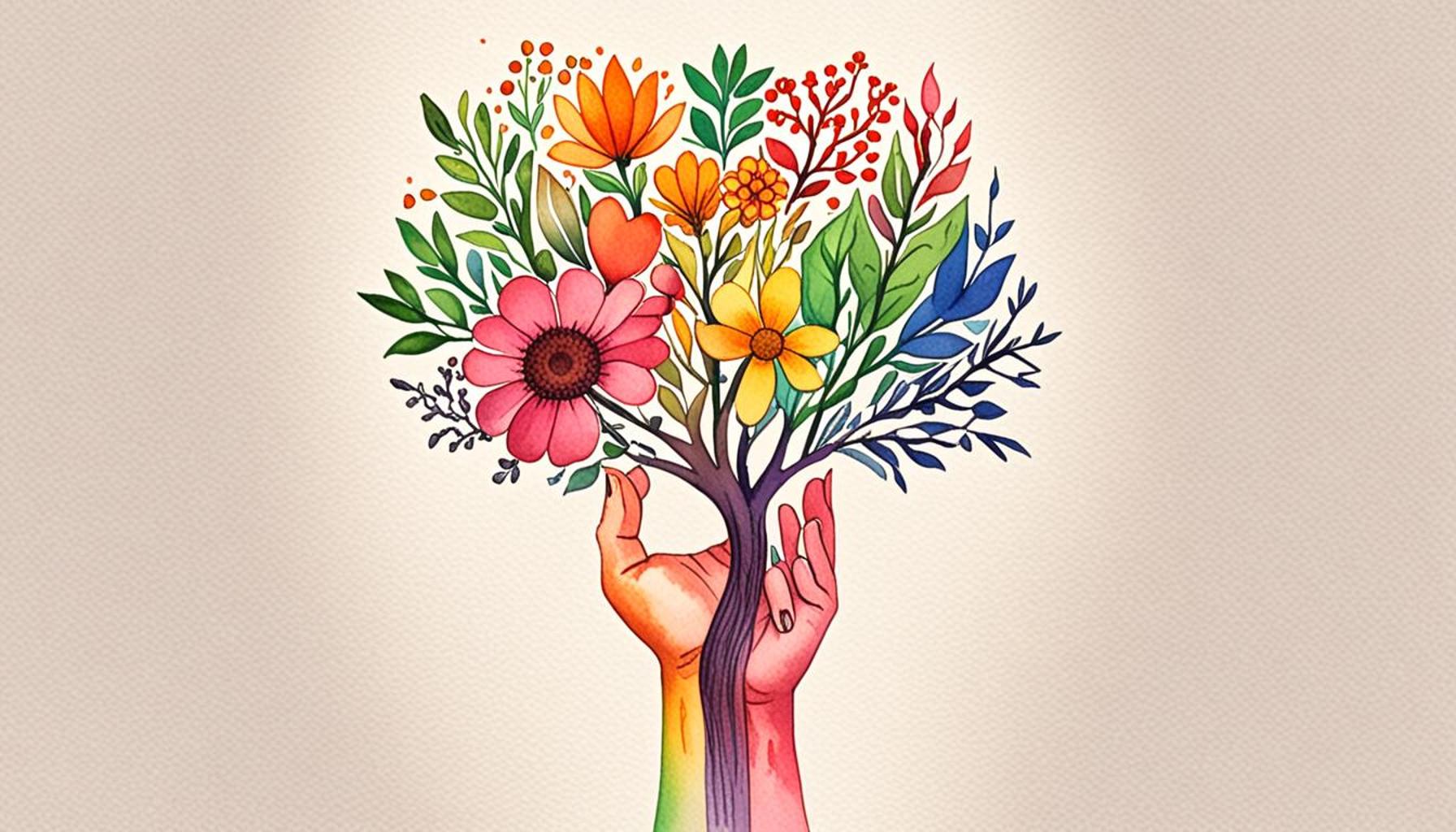The Role of Resilience in Financial Education: Building a Growth Mindset for Economic Success

The Importance of Resilience in Financial Education
In an era characterized by sudden economic shifts, the concept of resilience has emerged as a vital component of financial education, particularly in Nigeria. As the economy experiences fluctuations due to factors such as inflation, currency devaluation, and global supply chain disruptions, the ability to withstand financial pressures and emerge stronger becomes crucial. Resilience is not merely about enduring hardship; it is about learning, adapting, and thriving in the face of adversity.
For many Nigerians, the journey towards financial stability can be tumultuous. Various statistics indicate that a significant portion of the population faces challenges related to employment, access to credit, and managing personal expenses. This is where the synthesis of resilience and financial literacy plays a transformative role. By fostering a mindset that accepts setbacks as part of the learning process, individuals can cultivate the skills necessary for navigating the complexities of personal finance.
The Growth Mindset and Learning from Mistakes
One key aspect of resilience is the development of a growth mindset. This mindset encourages individuals to view failures not as insurmountable barriers but as valuable learning experiences. For example, a young entrepreneur in Lagos who faces initial setbacks in starting a small business can analyze the reasons behind those challenges—be it market research or financial mismanagement. This reflective practice enables them to pivot, improve their business strategy, and ultimately succeed.
Setting Long-Term Financial Goals
Moreover, the ability to overcome setbacks and maintain focus on long-term goals is essential for financial stability. Nigerians often face financial pressures that demand immediate solutions; however, resilient individuals are equipped to prioritize their long-term aspirations. They understand the importance of budgeting, saving, and investing wisely, even when faced with short-term distractions such as economic downturns or personal emergencies.
Resource Management and Informed Decision-Making
Another advantage of cultivating resilience is the capacity to build a robust plan for managing resources effectively. In a country where budgets can quickly be thrown off balance due to volatile prices, resilient individuals can analyze their financial situations critically. By adopting prudent spending habits, they can allocate funds to essentials while also exploring investment opportunities, such as local agricultural ventures or tech startups, that can yield significant returns despite economic pressures.

In addition, seeking opportunities even amidst challenging circumstances is a hallmark of financial resilience. For instance, Nigerian youth are increasingly turning to digital entrepreneurship, leveraging technology to create businesses that can thrive irrespective of traditional economic constraints. This shift not only aids personal financial growth but also drives innovation within the country, contributing to a more stable economic environment.
Ultimately, integrating resilience into financial education is a powerful strategy for fostering a culture of economic success. As individuals embrace this mindset, they not only improve their personal financial circumstances but also contribute to a more resilient national economy. Through resilience, Nigerians can cultivate a brighter financial future, marked by adaptability, informed decision-making, and the ability to thrive in the face of adversity.
SEE ALSO: Click here to read another article
Understanding Resilience: A Foundation for Financial Education
Resilience is more than just a buzzword; it is an essential attribute that shapes individuals’ approach to their financial education. The ability to adapt and recover from setbacks profoundly affects how one navigates the complex financial landscape in Nigeria. Financial education grounded in resilience equips individuals with the skills to face economic volatility, adapt to new circumstances, and ultimately seize opportunities as they arise.
The integration of resilience into financial education addresses several critical challenges faced by Nigerians today, including:
- Economic Instability: Fluctuations in oil prices, inflation rates, and currency devaluation can wreak havoc on personal finances. A resilient mindset encourages individuals to consider these as external factors that they can prepare for and rebound from.
- Employment Challenges: The high rate of unemployment prompts many to explore entrepreneurship. Resilience inspires potential business owners to embrace their failures and continuously improve their strategies.
- Access to Financial Resources: With limited access to credit and financial services, particularly in rural areas, resilience fosters a creative approach to resource management, urging individuals to leverage their networks for alternative funding solutions.
The Significance of Financial Literacy in Developing Resilience
The journey toward financial literacy in Nigeria is steep; however, cultivating resilience offers a way for individuals to go beyond mere survival. Resilience serves as a buffer against stress, ensuring that the anxiety of financial mishaps does not lead to poor decision-making. When armed with a solid understanding of financial concepts such as budgeting, saving, and investment, individuals can take calculated risks rather than making impulsive choices driven by fear.
For instance, many Nigerians may find themselves overwhelmed by fluctuating living costs, but those with a resilient mindset will instead focus on
creating a sustainable budgeting plan that accommodates such changes. By prioritizing essential expenses and curtailing unnecessary spending, resilient individuals position themselves for stability even in times of crisis.
Turning Setbacks into Opportunities
Take, for example, the story of a student who faced numerous challenges in funding their education. Instead of succumbing to despair, this individual sought alternative means of financing, such as scholarships, part-time work, and community support programs. This proactive approach exemplifies how resilience can help transform obstacles into stepping stones for success. Moreover, such individuals become pillars of their communities by inspiring others to pursue financial education and cultivate resilience.
In conclusion, resilience plays a pivotal role in reshaping financial education across Nigeria. By fostering a growth mindset, individuals are empowered to learn from their experiences, set actionable goals, and ultimately foster economic success despite the various challenges they may encounter on their financial journey. As this new mentality gains traction, it creates a ripple effect in society, leading to a more informed, empowered, and resilient population equipped to handle uncertain financial landscapes.
The Importance of Resilience in Financial Education
Resilience plays a pivotal role in enhancing financial education, acting as the foundation for a robust growth mindset. The ability to bounce back from setbacks is essential for navigating the ever-changing economic landscape. Individuals with strong resilience are more likely to embrace challenges, take risks, and pursue opportunities that can lead to economic success.One significant aspect of resilience in financial education is its impact on decision-making. When faced with financial difficulties, resilient individuals focus on long-term solutions rather than succumbing to immediate stress. They are more equipped to analyze situations objectively, make informed choices, and adapt their financial strategies over time. This proactive approach not only helps them manage their finances more effectively but also fosters a sense of confidence in their skills.Moreover, cultivating resilience involves developing a positive attitude toward failure. Instead of viewing setbacks as insurmountable obstacles, resilient learners see them as invaluable learning experiences. This shift in perspective encourages individuals to persist in their financial education journey, ultimately enhancing their ability to achieve economic success.Research has shown that those who adopt a growth mindset are more likely to engage in lifelong learning and self-improvement. They are more inclined to seek out educational resources, invest time in financial literacy, and participate in workshops or courses designed to deepen their understanding of finance. This continuous desire for growth not only supports personal development but also leads to more informed financial decisions and outcomes.Incorporating resilience-building strategies into financial education programs can significantly elevate participants’ confidence and capabilities. Techniques such as mindfulness, positive affirmations, and goal-setting exercises can help individuals fortify their resilience. As a result, they can approach financial hurdles with a constructive mindset, turning potential roadblocks into stepping stones toward economic achievement.By prioritizing resilience, financial education can effectively empower individuals to embrace challenges and cultivate a stronger, more adaptable growth mindset, ultimately paving the way for long-term economic success.
CHECK OUT: Click here to explore more
Building Strong Financial Habits through Resilience
In the intricate dance of financial education, resilience acts as a key facilitator in cultivating strong financial habits among individuals. Financial literacy is not merely about understanding numbers; it also encompasses the ability to make sound decisions under pressure and to recover swiftly from financial missteps. Building these habits is essential for long-term economic success in Nigeria, where economic uncertainties can often disrupt financial plans.
For instance, in a country where many families live paycheck to paycheck, the ability to save becomes paramount. Resilient individuals develop the habit of setting aside a portion of their income, even when it appears challenging. This savings mentality does not arise overnight; rather, it is honed through experiences of struggle and triumph. Studies indicate that having an emergency fund significantly reduces financial stress, allowing individuals to manage unforeseen expenses effectively. Therefore, cultivating resilience encourages a proactive approach to savings that can safeguard against future economic hardships.
Resilience as a Catalyst for Financial Innovation
Another vital aspect of resilience is its role as a catalyst for financial innovation. The challenges faced in Nigeria’s economic climate often necessitate out-of-the-box thinking, prompting individuals to explore new methods of income generation and investment. Resilient individuals are frequently the ones who harness their creativity to develop innovative business ideas that can thrive even amidst adversity.
Consider the rise of fintech companies in Nigeria, which emerged as a response to the limitations of traditional banking systems. Entrepreneurs recognized the need for accessible financial solutions and leveraged technology to address this gap. These innovations are born out of a resilient mindset that sees opportunity where others may only see barriers. By fostering resilience, financial education can inspire a new generation of thinkers and creators who can revolutionize the economic landscape.
The Community Impact of Resilience
Moreover, the impact of resilience extends beyond individual growth to encompass community development. Resilient individuals often become leaders within their communities, driving initiatives aimed at increasing financial literacy and promoting sound financial practices. Community programs focused on financial education can create a ripple effect, as individuals share knowledge and experiences, encouraging others to adopt resilient behaviors. For example, community savings groups in rural areas have proven successful in empowering individuals to save collectively, thereby enhancing their financial resilience.
Research shows that communities with strong networks of support lead to better economic outcomes. Such environments encourage individuals to seek help when faced with financial challenges and mitigate the feeling of isolation that often accompanies financial struggles. When resilience becomes a shared community value, it fosters an environment of learning and growth, ultimately leading to enhanced economic stability.
Integrating Resilience into Financial Education Programs
To truly harness the power of resilience, financial education programs must be designed to prioritize this attribute. Incorporating lessons that emphasize adaptability, creative problem-solving, and emotional intelligence can profoundly enrich the financial literacy curriculum. For example, workshops that simulate real-life financial setbacks can prepare participants to respond effectively when facing similar challenges in their lives.
Furthermore, collaboration with local businesses and community organizations can amplify the effectiveness of these programs. By linking financial education with real-world applications, individuals can see firsthand how resilience plays a crucial role in achieving financial goals. Investing in comprehensive training that includes aspects of resilience will equip Nigerians with the tools they need for economic success, even in the face of adversity.
SEE ALSO: Click here to read another article
Conclusion: Fostering a Resilient Future through Financial Education
In an ever-evolving economic landscape, the importance of resilience in financial education cannot be overstated. It emerges as a vital element that not only empowers individuals to withstand financial hardships but also encourages a growth mindset—a transformative approach that embraces challenges as opportunities for learning and growth. By building strong financial habits and nurturing the ability to innovate, resilient individuals are equipped to navigate uncertainties and contribute positively to their communities.
The cornerstone of financial success lies in the integration of resilience into financial education programs. By prioritizing adaptability, creative problem-solving, and emotional intelligence, these programs can prepare individuals for the challenges that lie ahead. This proactive approach not only enhances individual financial well-being but also strengthens community ties, fostering an environment where shared knowledge and support flourish.
As Nigeria continues to embrace its economic potential amidst challenges, the framework of resilience presents a pathway to economic stability and prosperity. Communities that cultivate a culture of resilience are more likely to promote financial literacy, innovation, and collaboration, ultimately driving sustainable growth. Therefore, as we redefine financial education for the future, let us commit to prioritizing resilience, ensuring that everyone has the opportunity to thrive, regardless of their circumstances. In doing so, we not only invest in individual success, but we also strengthen the fabric of Nigeria’s economy for generations to come.


